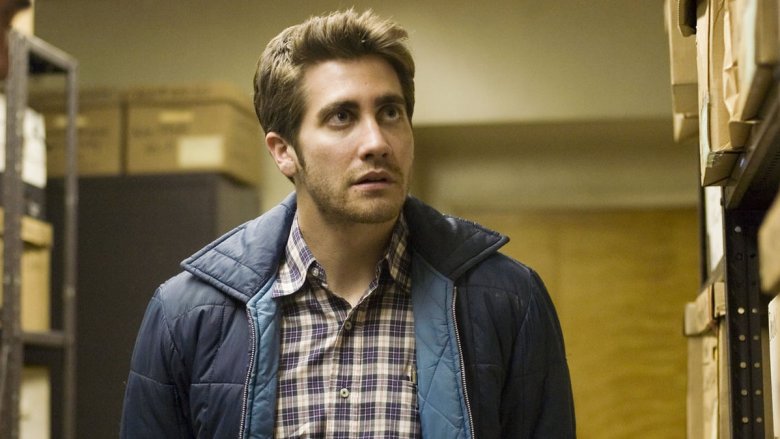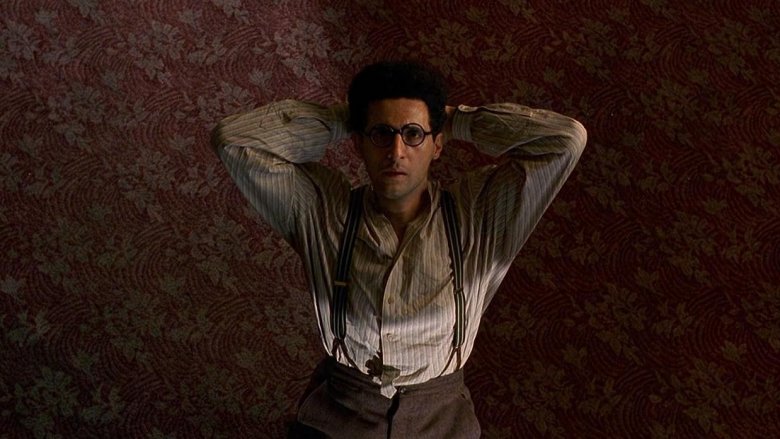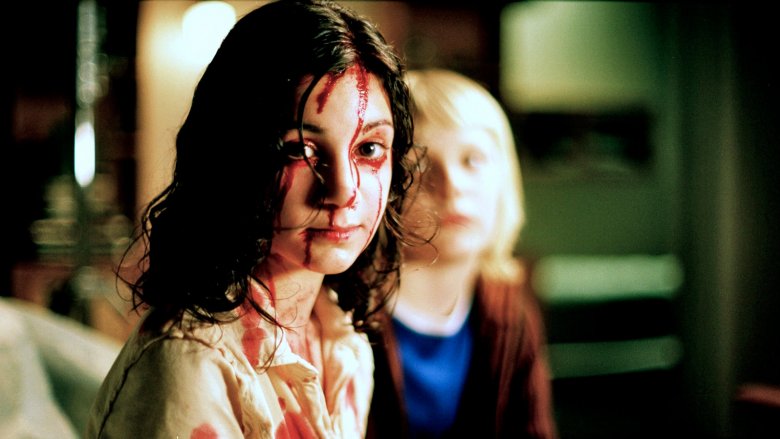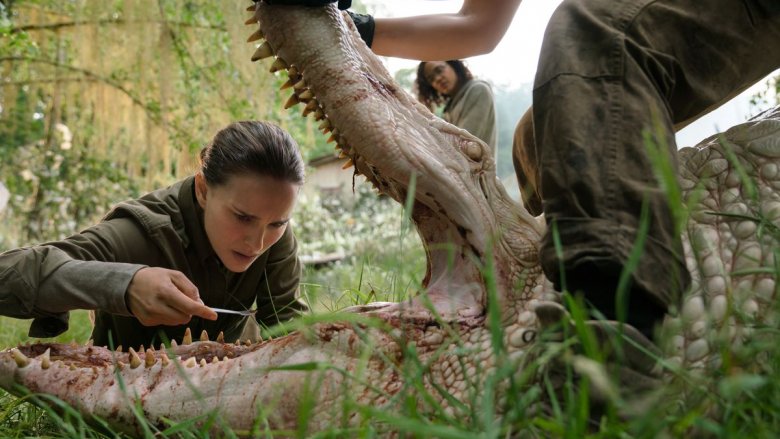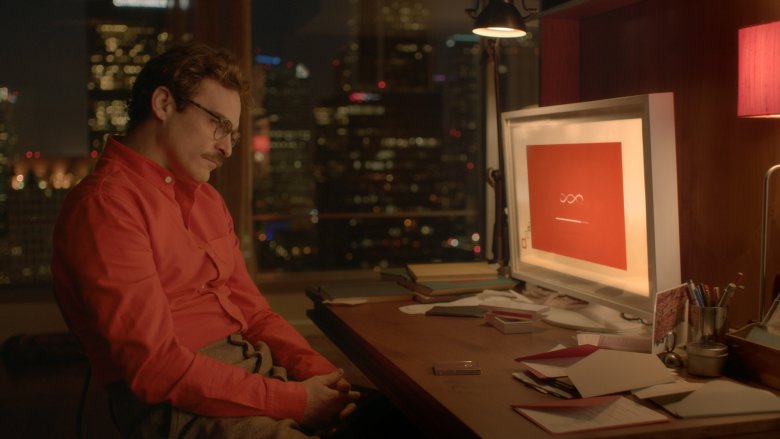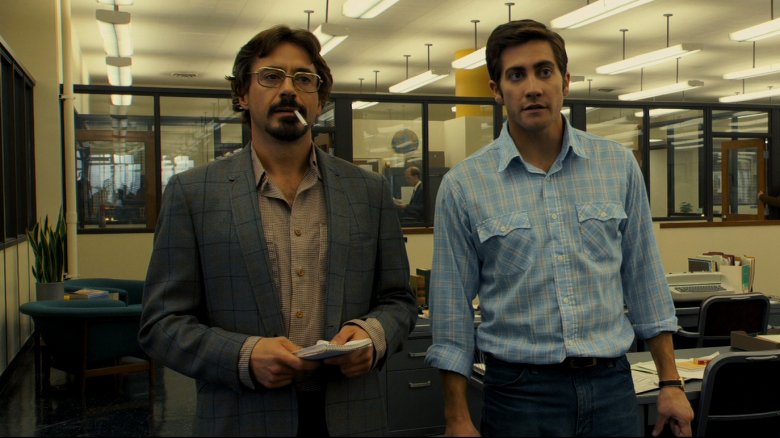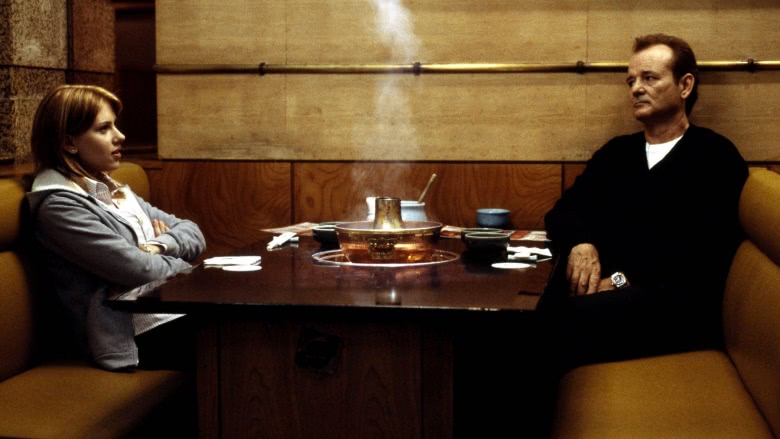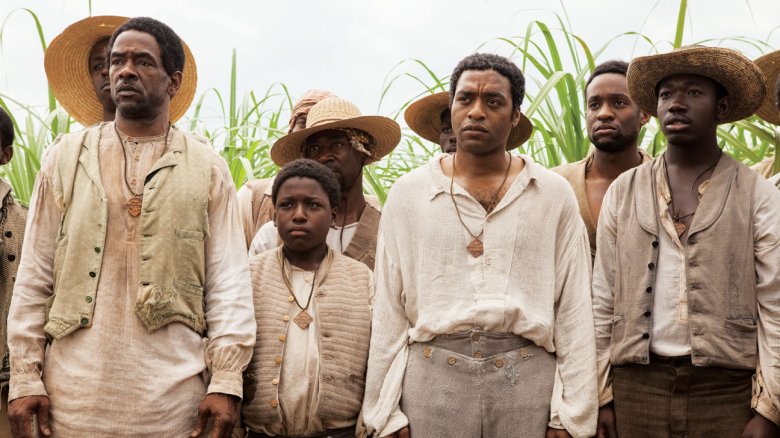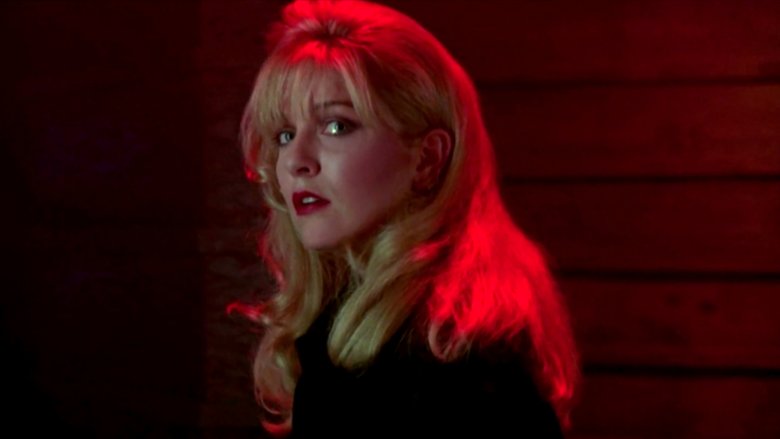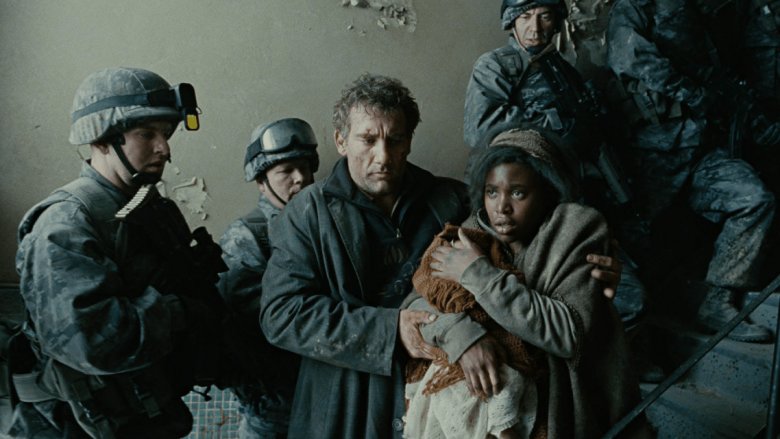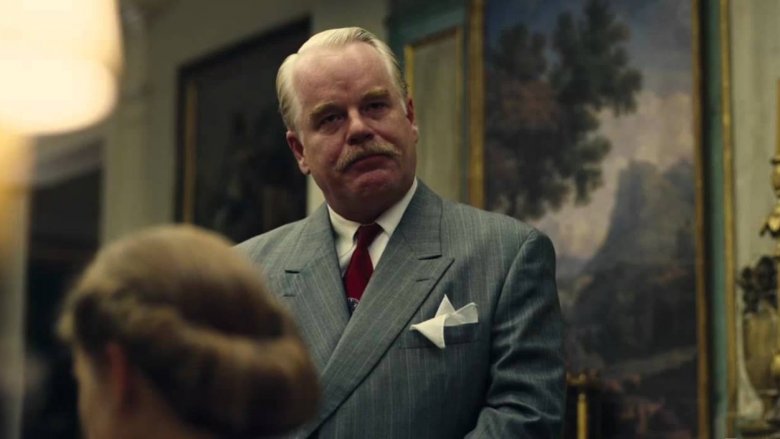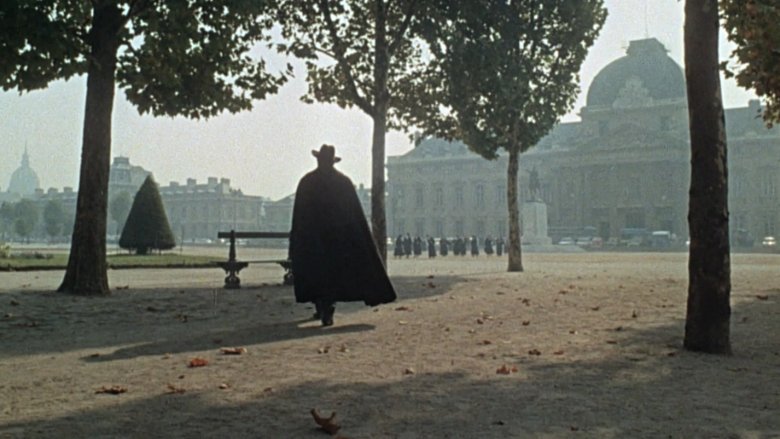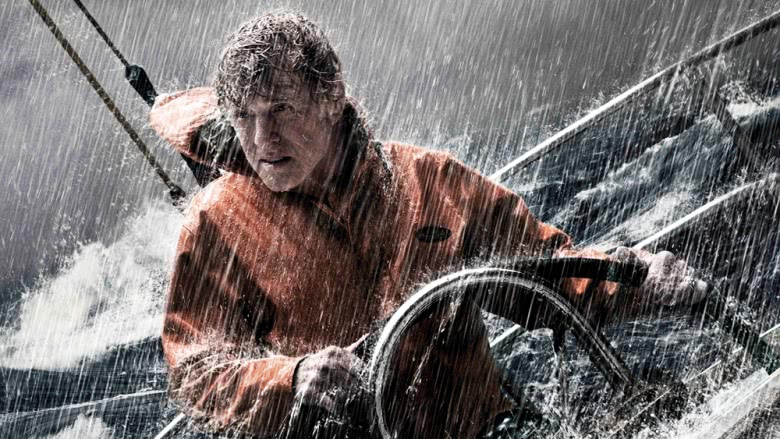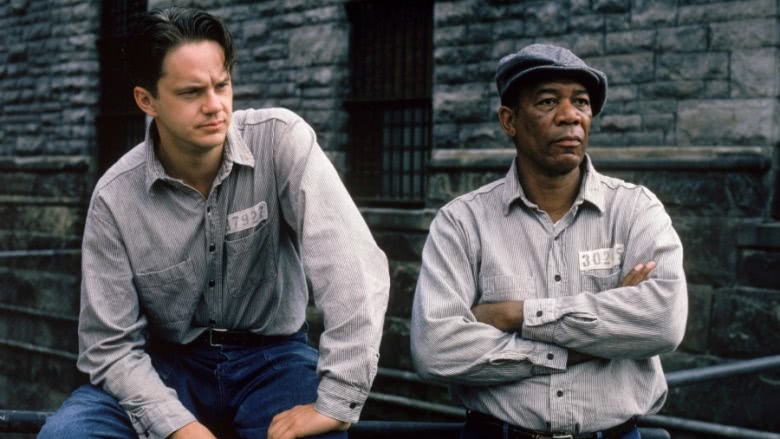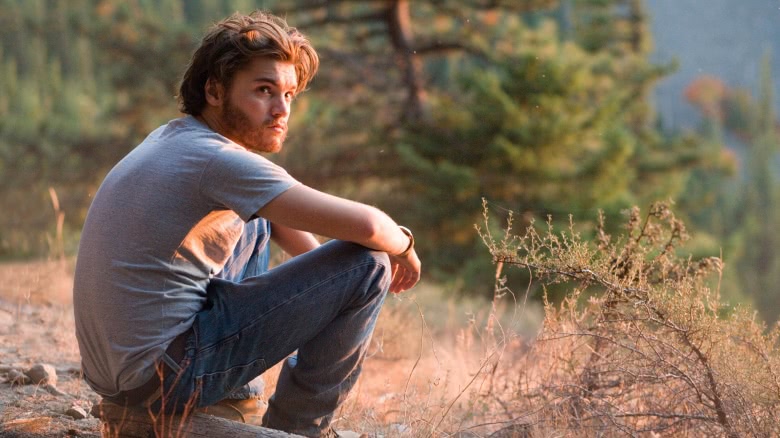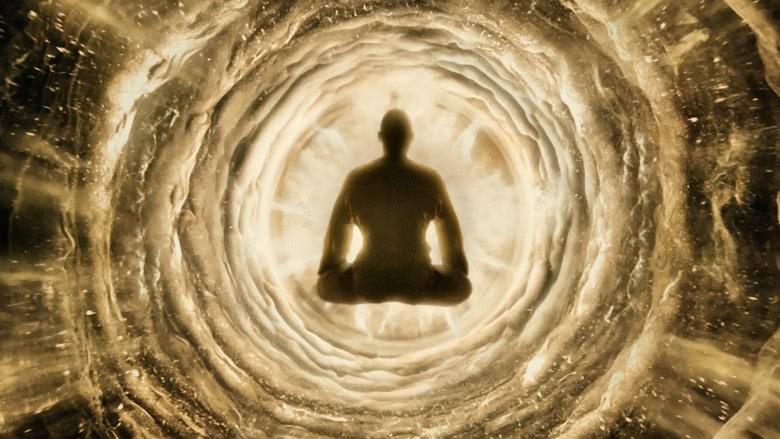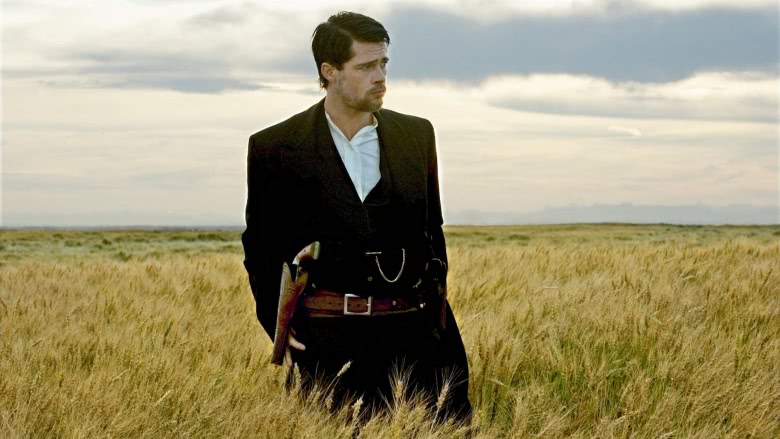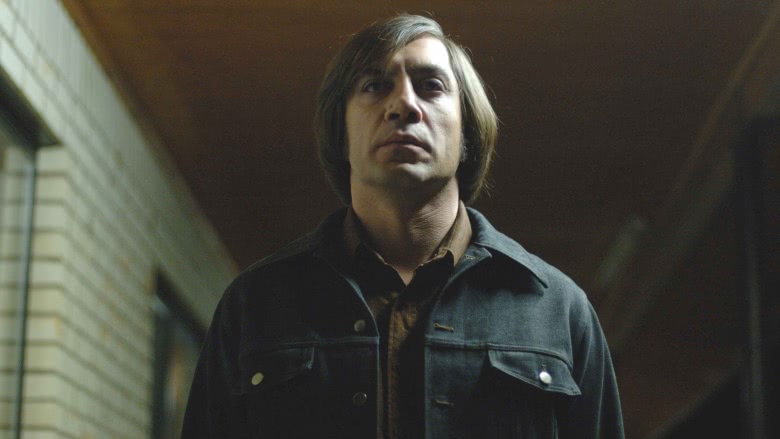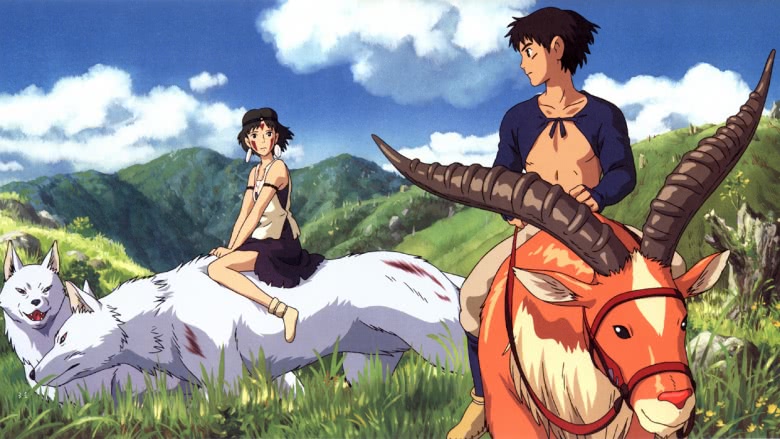Movies You Should Only Watch Alone
The movies began as a communal experience, and much of the time they still are. Before television and streaming on our laptops and phones, the only way to experience a film was to meet up with strangers in a dark room and experience a piece of art together. That's a rewarding activity, and provided your theater neighbors aren't pulling their phones out every five minutes to livetweet, it still can be. It's also great fun to watch a film with an audience that's truly engaged — laughing, crying, and cheering along to the events on the screen. Sometimes, that's absolutely what you want.
Then there are those other times, when a film just seems to demand your attention in a way that's so absolute that you just wish you could be by yourself with it. "Alone" could just mean you don't go with any friends who might decide to whisper their thoughts to you or ask questions during the movie, or it could mean just you and your personal screen of choice. Either way, these are films that want your full attention, no movie talkers or other distractions allowed.
Barton Fink
The films of the Coen brothers, even at their zaniest, are all made with a certain detail-oriented and deeply intellectual filmmaking style. That makes nearly all of them challenging in some way, but Barton Fink might be their most cerebral effort ever. The story of a gifted playwright (John Turturro) who heads out to Hollywood in an attempt to bring a degree of seriousness and meaning to motion pictures, the film is an examination of a very specific kind of creative self-seriousness, and the film itself both embraces that seriousness and satirizes it. "The Life of the Mind" is very much at work in the film's themes, dialogue, and visual symbolism, and in many ways what we are essentially watching is Fink's own confidence in his creative and intellectual prowess go up in flames. Watching the film alone both enhances the sense of isolation you share with Fink as a viewer, and underlines the cerebral loneliness at play.
Let The Right One In
Let The Right One In has become a modern horror classic thanks to its haunting visuals, subtle but effective gore, and intense performances by the two young actors at the heart of the story. On the surface, it's the kind of film you'd be tempted to watch with a group, and while that has its own rewards, it's also the kind of film that merits solitary viewing. For one thing, it's the story of two lonely people — one a bullied schoolboy and the other an ageless child vampire — who are searching for some sense of belonging in a cold and brutal world, and watching it alone helps you understand that. For another, it's one of the most understated horror films you're ever likely to see. If everyone around you watches it in typical horror movie fashion, tensing up and waiting for the big scares to come, that can be removed a bit. Try it by yourself, even if it does mean sleeping with the lights on.
Annihilation
Alex Garland's gorgeous yet disturbing sci-fi masterpiece is one of the most underseen but fascinating films of 2018, and now that it's available on home video, you're in a prime position to watch it in the dark, by yourself, absorbing every little detail of the Shimmer and the weird way it seeps into the brains of the film's characters. Annihilation is a film rich in visual and thematic textures. It's a meditation on trauma and guilt, an exploration of what it means to be an individual, and a glimpse at what happens when we really get the transformation we so desperately seek. It's also a film that leaves the answers to the questions it ponders somewhat ambiguous, and while it can be fun to discuss theories with people the moment the movie is over, Annihilation is a story that rewards silent contemplation. It's a film that begs you to not only watch it intently, but to sit with it in silence for a while after the credits have rolled.
Her
Her is a film about a lonely man (Joaquin Phoenix) who buys a sophisticated operating system that contains a charming artificial intelligence (Scarlett Johansson), and then promptly falls in love with her. It's quite literally about a man who falls in love with a screen. In that way, there's something absolutely perfect about watching it by yourself, particularly if you're lonely, just for the sheer satirical value of it all. Beyond that, though, there's something more to Her that begs to be considered in a solitary, quiet way. Some people see the film as an absolute comedy mocking our relationship to technology, while others see it as a very sincere study of our relationship to technology and where it could take us in the future. Either way, it's a fascinating film full of questions you'd rather not have a friend asking aloud in your ear while you watch. See it alone and then examine how you really feel about your Netflix account.
Zodiac
Zodiac is an intense, expansive, and extremely detailed film made obsessively, about one man's obsession with one of the most notorious serial killers in American history. It spans decades, covers a number of crimes, and features a continuous exploration of the facts in the case, inviting you to play detective alongside Robert Graysmith (Jake Gyllenhaal) as he journeys into the heart of darkness. Graysmith's search for the Zodiac is so thorough and takes him so far over the edge that he ultimately alienates many of the people around him, and the film itself is so hyper-focused that some viewers find it to be among the weakest in the David Fincher filmography. That said, if it's the kind of film for you, it might be best to watch it late at night, by yourself, perhaps even with a pen and notepad in hand to keep track of all the various threads. For a film like Zodiac, obsessively might be the only way to watch it.
Lost in Translation
Aside from featuring one of Bill Murray's greatest performances, along with exceptional work from Scarlett Johansson, Lost in Translation earned Sofia Coppola only the third Best Director nomination offered to a woman in Oscars history, proving she had the talent to escape her famous father's long shadow. Clearly, this is a movie that demands quiet concentration.
It isn't that taking in Lost in Translation with a crowd will make you lose sight of the story—there isn't much of a plot—but the self-reflection the movie motivates stands to be lost in the midst of a group. Like Johansson's character learns in that unforgettable final scene, there are some secrets you only learn when you're leaning in close enough to hear a whisper.
12 Years a Slave
Some films, no matter how beautifully they're made, are just hard to watch, and among those films the ones that are often the hardest to sit through are the ones that reflect our own atrocities back at us. Steve McQueen's stirring film about the real-life journey of Solomon Northup (Chiwetel Ejiofor), a free man abducted and sold into slavery, is a hard watch. It's beautifully made, the performances are amazing, and its determined spirit can ultimately inspire you, but still, the events of the film itself are deliberately and unforgettably grueling. Despite this, it's important to remember that a film like this needs to be grueling to get its message across, and that's a message diminished by mumbling, uncomfortable laughter, and people checking their phones next to you. So, if you really want to absorb the triumph and tragedy of McQueen's Oscar-winning period drama, put all of that aside and sit with it on your own.
Twin Peaks: Fire Walk With Me
With the right audience, the original Twin Peaks series can be a blast to watch with a group. It's quirky, it's funny, it's scary without being overwhelming, and it's full of fun little character details and quotes you can all talk about later. Fire Walk With Me, the prequel film that followed the original show's cancellation, is a different beast. Directed by co-creator David Lynch without his Twin Peaks creative partner Mark Frost, Fire Walk With Me abandons many of the more comedic elements of the series in favor of the bleak, brutal story of the last week of Laura Palmer's (Sheryl Lee) life. It's often a hard film to watch, and it expands the Peaks mythology in ways that are often hard to grasp upon first viewing, so watching it with a raucous crowd of Twin Peaks fans might not work. Instead watch it quietly, absorb its strangeness, and then maybe start all over again.
Children of Men
Children of Men is not just one of the best science fiction films of the 21st century, but one of the best films of this century so far, full stop. Alfonso Cauron's dense, taut, cerebral depiction of a world in which all human reproduction seems to have ceased is certainly worth watching in any venue, but it may bear particularly meaningful fruit if you watch it alone. For one thing, it's a film about the decline of the human population, so loneliness and futility are themes worth considering while watching it, but it's also just a film packed with meaning in every frame. It's deeply embedded with symbolism, emphasized by Cuaron's visual style and the brilliant performances of its impeccable cast. If you watch it alone, you have the advantage of picking up on as much of that as possible. Plus, those gorgeous long takes, no matter how emotionally devastating, just beg for you to watch them without distractions.
The Master
Like the films of The Coen brothers, the films of Paul Thomas Anderson are often overwhelmingly cerebral, rich with a meaning that isn't always obvious but is always compelling enough to make a careful viewer lean forward and take notice. The Master, perhaps more than any of this other work, deliberately provokes this with a tale about a charismatic leader (Philip Seymour Hoffman) and the curious convert (Joaquin Phoenix) who joins his cause. Comparisons to L. Ron Hubbard and Scientology are obvious on the surface, but whatever The Master is searching for in its own tense, fascinating way runs much deeper than a thinly veiled allegory for a real life belief system. In Anderson's hands, the film becomes a meditation on manhood, faith, self-destruction, longing, fear, and raw human endurance. These are heavy things in a heavy movie, and they're really worth sitting with alone, particularly if the people you'd be watching the film with otherwise are the type to ask too many questions the film itself isn't willing to answer.
The Other Side of the Wind
In 2018, nearly five decades after he started work on it, Orson Welles' final film was at long last completed and released to the world via Netflix. The Other Side of the Wind has been a fabled piece of cinema history for years, a kind of cinephile Holy Grail that numerous film fans have been waiting most of their lives to see. Now that it's finally here, and it's available to watch in the privacy of your own home, odds are good that many fans are going to treat the film's arrival as a kind of sacred moment to be experienced absolutely free of any distractions. That's reason enough to watch it alone, but the mockumentary style of The Other Side of the Wind is another. It's a breathless, constantly moving film packed with characters who come and go in a matter of seconds. Very little is spoon-fed to the audience, and Welles' attempt to make a challenging piece of cinema that broke with all the conventions of the time is still, while more conventional to modern eyes, very deserving of all of your mental energy.
All Is Lost
Robert Redford's ability to grip audiences with a compelling performance has never waned throughout his career, and that gift is particularly evident in J.C. Chandor's All Is Lost, an acclaimed 2013 drama in which Redford's unnamed sailor endures a litany of increasingly life-threatening mishaps during a solo voyage.
Watching this film alone is a transformative experience. There's only one character and he hardly ever speaks, which makes sounds that ordinarily might not be noticed—like thunder—all the more intriguing. When there's little to no dialogue throughout an entire movie, with most of the sound coming from the main character shuffling around, what would normally be an ordinary background detail becomes a key factor in the film's immersion. Every detail in All Is Lost, from the sextant to the roaring storm, requires the audience's full attention.
Gravity
Starring Sandra Bullock as Dr. Ryan Stone and George Clooney as Lt. Matt Kowalski, Alfonso Cuarón's hit 2013 space drama Gravity is a film that filled theaters for weeks—but in order to truly exert its devastating impact, it needs to be seen alone. For one, the filmmakers do an excellent job of projecting Stone's panic onto the audience after she's marooned in space. Astronaut Sherwood Spring said watching the film, and relating to her fears, made him recall a moment from his own career. Fear is alleviated in a group setting, so truly putting yourself in Dr. Stone's position requires watching the film alone.
Whether or not there's sound in space is up for debate, but Cuarón's command of Gravity's soundtrack is the second reason you should watch it by yourself—and with the volume high. It's the type of film in which the intensity continuously builds, amplified by the skillful use of sound. Even the crescendo in the score allows audiences to feel the emotional weight of Bullock's character's struggle to reach Earth—and survive. Just one sound, one second of distraction, can ruin the experience.
The Shawshank Redemption
Have you ever turned on the TV and started watching a movie, even if it's already been on a for awhile, and just couldn't stop? The movie may not be one of your favorites, or even one you'd normally choose to watch, but once you're pulled in, you can't turn away. That's The Shawshank Redemption for many people. The Frank Darabont-directed film didn't do too well at the box office, but it has since been recognized as one of the greatest films of all time.
Watching The Shawshank Redemption can change your life. (That's what people keep telling Morgan Freeman, anyway.) When you're in the midst of it, you don't want any distractions—plus, if you don't want people to see you cry, then you really don't want to watch it with company.
Into the Wild
Based on the novel of the same name by Jon Krakauer, Into the Wild tells the true story of Christopher McCandless (Emile Hirsch), a recent college grad who braved the Alaskan wilderness in the early '90s and sadly died from starvation a few months into his trek.
Beyond helping moviegoers escape their daily lives, films can make audiences think by relating to the characters or the story, and Into the Wild's judgment-free dramatization of McCandless' doomed pilgrimage offers a perfectly introspective example. Who knows, maybe you'll be inspired to abandon materialism and take an adventure of your own in the Alaskan wilderness? You wouldn't be the first.
Moon
Duncan Jones' feature debut Moon is another example of a lonely tale that messes with the viewer's mind. Sam Rockwell stars as Sam Bell, an astronaut at the tail end of his spell mining helium-3 on the dark side of the moon. Three years in space, alone, can affect someone in all sorts of ways, particularly psychologically—but when clones and artificial intelligence are involved, things can get odder still. Moon is hard sci-fi, and it requires the audience's absolute attention. Watch it with the wrong people, and you'll miss out on vital parts of the experience—but no matter how you see Moon, you're in for an unforgettable ride.
The Fountain
Darren Aronofsky's filmography is studded with Biblical symbolism, and The Fountain, starring Hugh Jackman and Rachel Weisz as star-crossed lovers, offers a particularly absorbing example. The film is a visual spectacle, to say the least, but its three storylines are just as finely crafted—and easy to lose track of if you aren't paying close attention. Lose concentration and you could easily miss details crucial to grasping the story as a whole. The Fountain has an exceptionally emotional story, but watching it unfold with a group of friends might very well take you out of the moment.
The Assassination of Jesse James by the Coward Robert Ford
The Assassination of Jesse James by the Coward Robert Ford may be slow at times—okay, most of the time—but this dramatization of the titular infamous killing never stops building in intensity, due in large part to the directing style of Andrew Dominik and the masterful eye of cinematographer Roger Deakins.
Deakins' unique style can make even the most mundane and overdrawn scenes appear remarkable. Don't believe us? Watch this clip from the train robbery scene and see how hypnotic cinematography can be. You wouldn't want to go to a museum and be distracted while you're trying to admire a painting, so why would you want to tune out chatter during an artistic masterpiece like The Assassination of Jesse James by the Coward Robert Ford?
No Country for Old Men
Some of the most entertainingly weird films in recent cinematic memory—Fargo, The Big Lebowski, and Burn After Reading—have either been written or directed by Joel and Ethan Coen, and 2007's No Country for Old Men is a particular standout. Based on the Cormac McCarthy novel of the same name, this modern Western thriller—fueled by powerful performances by Tommy Lee Jones, Javier Bardem, and Josh Brolin—won Best Picture and Best Director at the Oscars. It's considered one of the greatest films of the century, as well as the Coen brothers' masterpiece...and that's saying something.
Westerns can be slow, punctuated with intermittent bursts of heightened action, and No Country for Old Men is a prime example. The tension, suspense, and thrills never stop building, and if forced to deal with distractions during the movie, you'd be taken right out of the story—ruining the experience altogether.
Any of Hayao Miyazaki's films
Legendary Japanese filmmaker Hayao Miyazaki has done more for animation than many casual filmgoers might realize. His movies may not be as well-known to the general public as Disney's library of hits, but from The Castle of Cagliostro to The Wind Rises, Miyazaki and his Studio Ghibli have expanded the genre to make room for sophisticated storytelling and mind-blowing visuals.
They aren't event movies, though, and they aren't made for watching with a group of friends. Tackling thought-provoking themes in their own distinctive style, Miyazaki movies demand the type of emotional room you can only offer while solo. If given the opportunity, it's best to watch every single one of Miyazaki's productions—even the short films—alone. You don't want someone pointing out how cute something is every few minutes.
